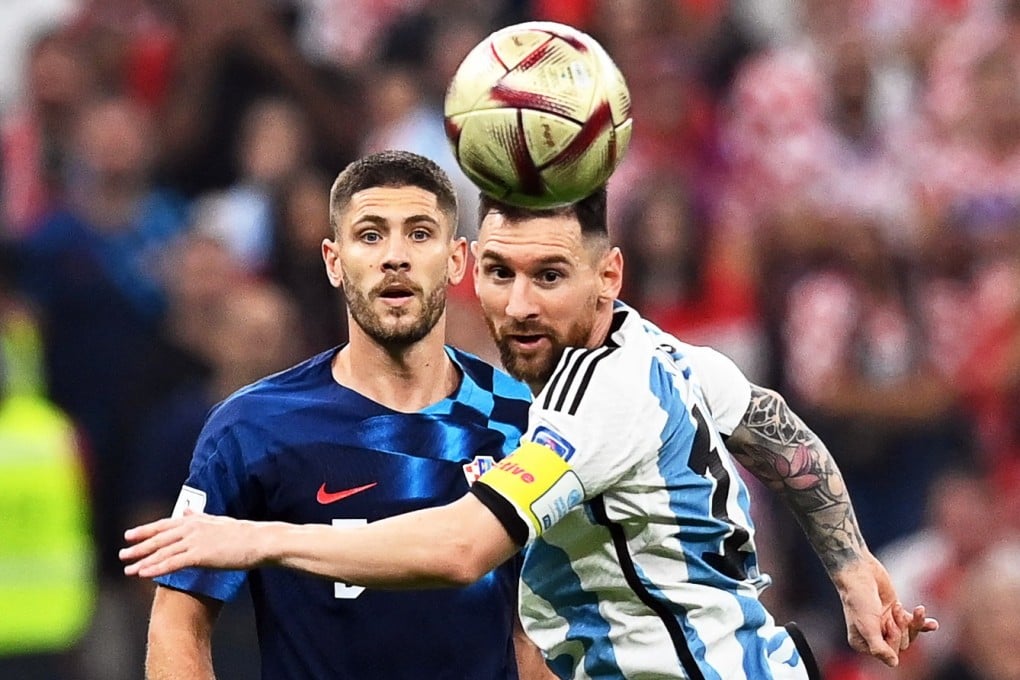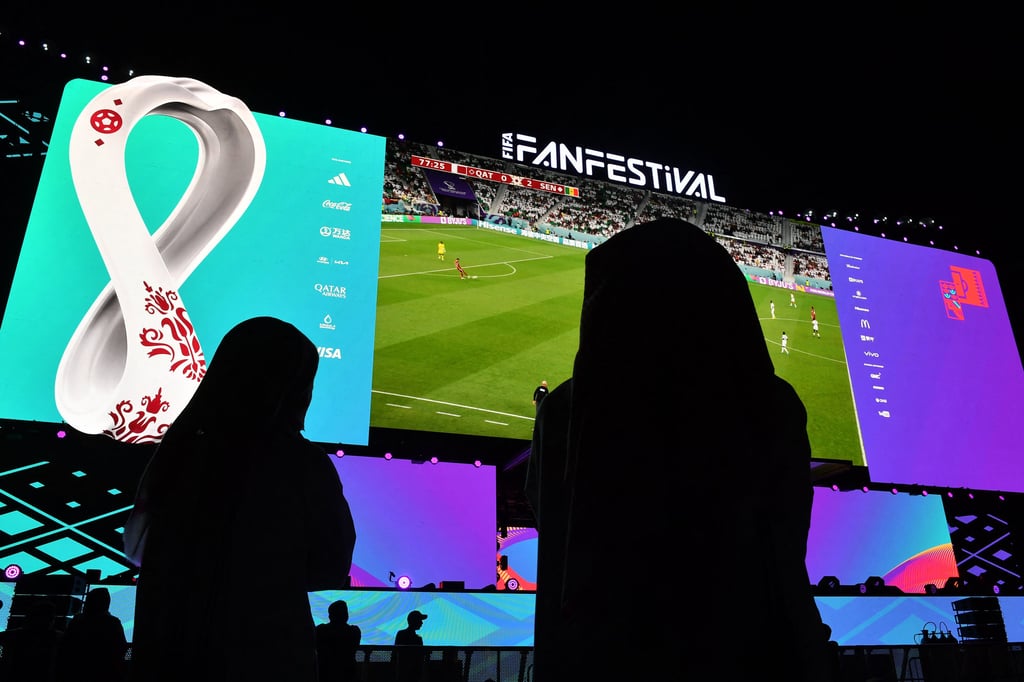Fifa World Cup: Big spending sponsors ensure China’s presence in Qatar remains strong
- Some of China’s biggest companies from Wanda, Hisense, Vivo and Mengniu are spending millions to engage football fans around the world
- But China’s response to Covid-19 has meant the country’s engagement with the World Cup has been limited

Within the sprawling environs of Doha’s Al Bidda Park, a short stroll from where the city’s glitzy skyline illuminates the shores of the Gulf, the heart of Qatar’s World Cup hosting pulses through the night with techno beats and football broadcast on enormous screens.
Beer flows freely at the Fifa Fan Festival as supporters from around the world mingle. For those unable to acquire tickets for matches, this 188-hectare site has become the epicentre of their World Cup experience.
On the fringes of the park, the brands that have signed multimillion-dollar contracts with world football’s governing body seek prominence in an area where they have a high-profile presence at one of sport’s most lucrative properties.
Among the household names of the global business elite sit a quartet of Chinese companies, keen to harness the worldwide exposure provided by an event that is streamed into billions of homes and for which the appetite seemingly remains insatiable.
All have been here before. Wanda Group are deep into a contract with Fifa that runs until 2030 and sees them work across all of the organisation’s events, while electronics manufacturer Hisense, smartphone maker Vivo and dairy producer Mengniu remain on board as World Cup sponsors, just as they were four years ago in Russia.

Their presence ensures China retains an involvement at the World Cup as the national team’s perennial struggles continue, with the country’s failure to qualify for the finals now extending back two decades to their only appearance at the tournament back in 2002.